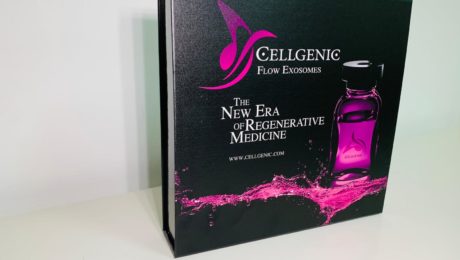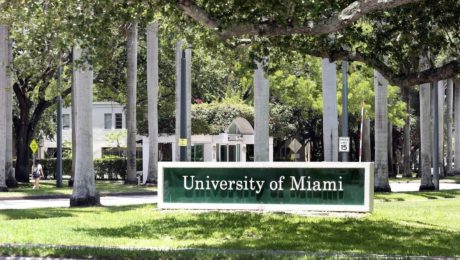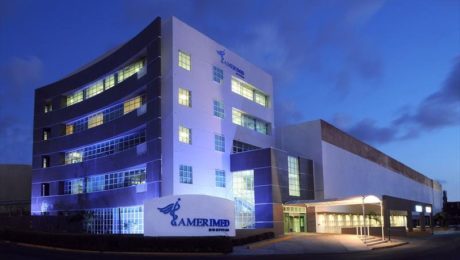ISSCA Members to Present in the XXV Congreso Internacional de Medicina, Cirugia Estética y Obesidad
The XXV Congreso Internacional de Medicina, Cirugia Estética y Obesidad will take place in CDMX, México on July 13,14 and 15, 2022. The International Society for Stem Cell Application (ISSCA) will be actively taking part in the congress. The ISSCA is a multidisciplinary community of physicians and scientists with a mission to advance the science, technology, and practice of regenerative medicine to treat diseases and lessen human suffering through science, technology, and regenerative medicine. Several ISSCA members will be presenting or giving demonstrations on the latest protocols and technologies in regenerative medicine.
- Benito Novas, the managing director of the ISSCA from the USA, will give a talk about Digital Marketing in Cash-Based Practices. Benito Novas is a global entrepreneur, manager, and keynote speaker, who specializes in marketing focused on biotechnology, life sciences, and healthcare development. He has served as the director of the ISSCA since 2016. His published books in Aesthetic Practice and Digital Marketing can be found here. In his presentation this July, he will share his visionary approach to healthcare management and regenerative medicine. Congress attendees will have the opportunity to learn why doctors must use digital marketing strategies to grow a successful practice. Benito Novas will provide tips to attendees on how to capitalize on social media trends to grow practice influence.
- Dr. Maritza Novas, the ISSCA director of education from the USA, will talk about Allogeneic Therapies and Stromal Cell Exosomes. The use of allogeneic therapy is one of the most attractive alternatives to autologous products and is of utmost interest to researchers in recent years. Exosomes serve as mediators for cell-to-cell communication and can be used as cell-free therapeutics for their special characteristics. Dr. Maritza Novas has been in aesthetic and anti-aging medicine since 2001. She is globally recognized for her work in regenerative medicine and dedicated service in education.
- Dr. Silvina Pastrana, the Argentina chapter director of the ISSCA from Argentina, will present on Fundamentals of Cellular Therapies and Mesenchymal Stem Cells (MSC). Dr. Pastrana heads a staff of medical specialists in orthopedics, rheumatology, medical clinic, and cosmetic surgery, performing procedures that incorporate stem cell therapies. She has been serving as a staff surgeon for the Hospital Dr. Prof. Luis Güemes for 21 years.
Besides the above presentations, look forward to sessions in the practical portion of the congress, where the following ISSCA members will show the latest protocols and technologies in regenerative medicine:
- Dr. Julio Ferreira (Argentina), Cosmetic Surgery / Aesthetic Medicine
- Dr. Andrea Lapeire (Argentina), Aesthetic Medicine
- Dr. Maritza Novas (USA), ISSCA Director of Education in the USA
- Dr. Silvina Pastrana (Argentina), Chapter Director of ISSCA in Argentina
The ISSCA members are the leaders in setting standards and promoting excellence in the field of regenerative medicine, related education, certification, research, and publications. The Global Stem Cells Groups (GSCG) is a group of companies, including the ISSCA and other members, dedicated to facilitating stem cell research and medicine. Making the benefits of stem cell medicine a reality for both doctors and patients worldwide is the goal of the GSCG. To learn more, visit our sites at the ISSCA and the GSCG.
- Published in Press Releases
How much does exosome therapy cost?
Exosome therapy is the new buzz in the regenerative medicine industry because of how it can repair and regenerate your cells and tissues.
Exosome therapy is safer compared to other cellular therapy because it’s a cell-free therapy with no risk of rejection.
Exosome therapy will be beneficial to you if you’re dealing with conditions such as sports injuries, tissue regeneration, hair loss, erectile dysfunction, chronic pain, and many other applications.
In this article, you’ll learn about the cost of exosome therapy and how you can benefit from it.
How the Cost of Exosome Therapy is Determined
All cells produce exosomes, which are microvesicles that contain biochemical and genetic information.
The cost of an exosome product (used in exosome therapy) will depend on the type of cell line (raw tissue source) used to extract the exosomes.
The first factor to determine the cost of an exosome product is the quality of the tissue source.
The most commonly used tissue types are cord blood, amniotic fluid, and mesenchymal cell cultures.
Exosomes derived from mesenchymal cell cultures are the most difficult to obtain but offer the greatest therapeutic potential.
How Much Does Exosome Therapy Cost?
The average cost of exosome therapy is $4,900, but the price can range from $3,500 to $6,500.
It’s also important to note that the price depends on your specific needs and your treatment plan, as decided by the doctor.
The doctor will schedule a consultation with you to determine your personalized treatment plan.
The exosome therapy can either be given as an IV infusion or as localized injections, depending on the purpose of the therapy.
Exosomes are very useful to revitalize, rejuvenate, restore, and reduce inflammations in the body.
Benefits of Exosome Therapy
Hair Loss Therapy
If you’re in the early stages of hair loss, exosome therapy can help regenerate your hair whether you’re a man or woman. After exosome therapy, you’ll start seeing new hair growth in as little as two to three months, with significant results showing six months to one year later.
Chronic Pain
If you’re experiencing chronic pain due to degenerative conditions such as arthritis, exosomes can help subdue the pain by regenerating the cells and helping the body work better.
Degenerative Conditions
For degenerative medical conditions such as osteoarthritis and musculoskeletal injuries, exosome therapy can help your body repair the damage done to your cells, prevent further deterioration, and help you feel better.
Skin Therapy
Exosome therapy can reduce inflammation in the skin by improving its strength and elasticity.
Anti-Aging
If you would like to retain your youthful glow, exosome therapy can make you feel young again by rejuvenating your skin and reversing the aging process in your cells.
Where Can You Get Exosome Therapy?
Cellular Hope Institutes provide exosome therapy for patients looking for better outcomes for various conditions.
The exosomes used at Cellular Hope Institute are obtained from umbilical cord tissue discarded after birth, which means these exosomes have not been exposed to any contaminants or toxic agents, ensuring a higher capacity to regenerate your cells and tissues.
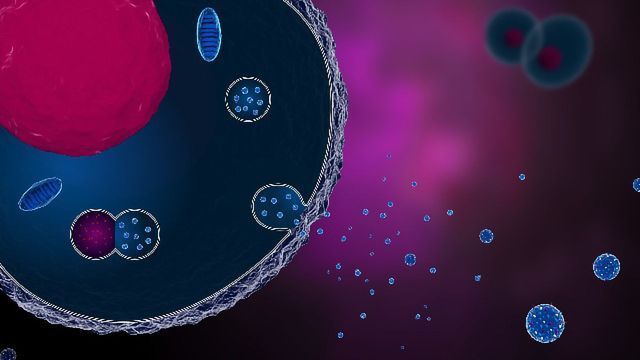
- Published in Corporate News / Blog
Culture Expanded MSCs
Mesenchymal Stem Cells (MSCs) are the most commonly used cells in stem cell therapy and regenerative medicine due to their high multi-potency. MSCs can be isolated from different tissues in the body.
In this article, you’ll learn about culture-expanded MSCs, how MSCs can be expanded, the potency of MSCs, and the types of cells they can differentiate into.
What Are Culture Expanded Mesenchymal Stem Cells?
Mesenchymal stem cells are highly potent cells used for cellular therapy and are isolated from different parts of the body. MSCs can be used to improve patient outcomes in diseases and conditions such as autoimmune diseases, degenerative diseases, nerve damage, diabetes mellitus, bone problems, etc.
For every patient, millions of MSCs are needed, and the exact amount varies according to disease, route of administration, administration frequency, weight, and age of the patient.
MSCs are expanded in a culture medium on a large scale to obtain the required quantity of cells needed for cellular therapy.
Culture Expanded MSCs: How Does It Work?
Expanding MSCs in a medium involves a step-by-step process of isolation and expansion.
Mesenchymal Stem Cells Isolation
MSCs can be isolated from different tissues in the human body such as adipose tissues, dental pulp, human bone marrow, umbilical cord tissue, umbilical cord blood, peripheral blood, and synovium.
MSCs are expanded in culture to increase their yield and amplify their desired functions and potency.
Although the population of MSCs obtained will vary from donor to donor, here are some steps to follow:
- Acquire fresh tissue extracts in strictly aseptic conditions to maintain purity.
- To remove any cell clusters, filter the cell suspension with a 70-mm filter mesh.
- Use a centrifuge to roll the cells for about 5 minutes at 500g.
- Suspend the cells again to measure the cell viability and yield using Trypan blue exclusion.
- Use T75 culture dishes to culture the cells in 10 mL of complete MSC medium at a density of 25 × 10^6 cells/mL. Incubate the plates at 37°C with 5% CO2 in a humidified chamber without any interruption.
- After 3 hours, remove the non-adherent cells by changing the medium and replacing it with 10 mL of fresh complete medium.
- After an additional 8 hours of culture, add 10 mL of fresh complete medium as a replacement for the existing medium. Repeat this step every 8 hours for up to 72 hours of initial culture.
- Cells can be frozen in MSC growth media plus 10% DMSO (D2650) at a density of 2X10^6 cells/vial.
Expansion of Mesenchymal Stem Cells in a Culture Medium
Culture-expanded MSCs undergo various stages from the preparation of the culture plate, thawing of MSCs, and the actual expansion of MSCs.
The reason behind the cultural expansion of MSCs is to get them to differentiate into other cell types such as osteoblasts, adipocytes, and mesenchymal stromal cells.
Preparation
To expand MSCs in a culture medium, you need culture ware. You can get one plastic or glassware plate and coat it with a sufficient amount of 0.1% gelatin. Don’t forget to aspirate the gelatin solution from the coated plate or flask before you use it.
Thawing of Mesenchymal Stem Cells
- After the recommended culture medium and coated culture ware is ready and on standby, remove the vial of MSCs from liquid nitrogen and incubate in a 37°C water bath until all the cells are completely thawed. The extent of completely thawed frozen cells and how fast they thaw determines cell viability.
- Once the cells have thawed completely, disinfect the walls with 70% ethanol before proceeding to the next step.
- Place the cells in a hood, and carefully transfer the cells to a sterile tube with a pipette (1 or 2 mL pipette), doing this to prevent bubbles.
- Add drops of MSC expansion medium that have been pre-warmed to 37°C to the tube containing the MSCs.
- Mix the suspension slowly by pipetting up and down two times while avoiding any bubbles.
- Place the tube in a centrifuge and centrifuge the tube at 300 x g for 2-3 minutes to roll the cells, avoiding vortexing the cells.
- Decant as much of the supernatant as possible to remove residual cryopreservative (DMSO).
- Suspend the cells in a total volume of 10 mL of MSC Expansion Medium again or any alternative of choice, pre-warmed to 37°C, containing freshly added 8 ng/mL FGF-2 (F0291).
- Place the cell suspension onto a 10-cm tissue culture plate or a T75 tissue culture flask.
- Maintain the cells in a humidified incubator at 37°C with 5% CO2.
- The next day, exchange the medium with fresh MSC Expansion Medium (pre-warmed to 37°C) containing 8 ng/mL FGF-2. Replace with fresh medium containing FGF-2 every two to three days thereafter.
- Isolate the cells when they are approximately 80% confluent, using Trypsin-EDTA, and passaged further or frozen for later use.
Functions of Culture Expanded MSCs
MSCs are required to be expanded in order for them to be used clinically for therapeutic purposes.
Culture-expanded MSCs can be induced to differentiate into adipocytes, osteocytes, hepatocytes, chondrocytes, tenocytes, and cardiomyocytes.
Due to their potential to differentiate into different kinds of cells in the body, MSCs can be used to manage liver problems, heart problems, joint and bone problems, etc.
MSCs are also used in tissue regeneration and modulation of the immune system. They possess anti-apoptotic, angiogenic, anti-fibrotic, and anti-oxidative properties.
However, the quantity of MSCs isolated from body tissues is not enough for clinical and therapeutic applications.
This is why MSCs are expanded in culture to increase their yield for desired therapeutic effect.
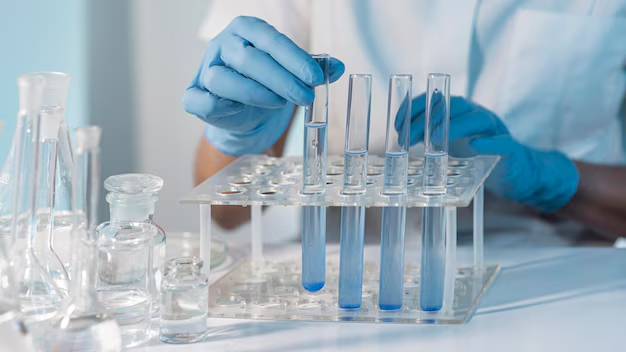
- Published in Corporate News / Blog
Why cellular therapies have become a standard in clinics that are betting on biological medicine
Cellular therapy is fast becoming a standard therapy in many regenerative clinics today. Many doctors are no longer questioning the safety and effectiveness of stem cell therapy. This is because various stem cell studies are already describing the benefits of stem cells for patients who are living with chronic and autoimmune health conditions.
This article will discuss why stem cell therapy has become a standard therapy in clinics, the paracrine effect of stem cells, and other reasons why doctors are adopting stem cells in their clinics.
Benefits of Stem Cell Therapy
Stem cell therapy is an important innovation in medicine because of its regenerative power in the human body. Most disease states are characterized by damaged cells, tissues, and organs, which is where stem cell therapy comes in. In stem cell therapy, stem cells are administered into the human body and replace the cells damaged by disease or health disorders.
Stem cell research has revealed two major ways of using stem cells to rebuild defective and damaged cells. One of these ways can be seen in procedures like bone marrow transplant, where stem cells are used to replace the damaged cells by engrafting, and they then differentiate into the proper cell type. Another mechanism relies on the paracrine effect of stem cells. This procedure of stem cell therapy involves using stem cells isolated from a donor to stimulate the patient’s cells to repair damaged tissues.
Additionally, unlike traditional therapy, stem cells have a wide application. Stem cell therapy is used to manage various degenerative diseases, autoimmune disorders, birth defects, and the research is still ongoing for so many other health conditions where stem cells have shown potential.
Also, there is currently a high demand for aesthetic medicine. Stem cell therapy is a proven alternative to other forms of cosmetology such as plastic surgery. Hence, dermatologists are turning to stem cell therapy to administer anti-aging procedures, skin rejuvenation, hair therapy, micro-needling, etc.
Why Cellular Therapies Have Become a Standard
The paracrine effect of stem cells is one of the most outstanding effects of stem cells. It involves using donor cells to stimulate endogenous repair by harnessing the regenerative power of the human body. It is a mechanism of tissue regeneration that has created new possibilities for managing various conditions using stem cell therapy.
The cells that trigger a paracrine response are mesenchymal cells, umbilical cord blood, umbilical cord tissue, adipose (fat) tissue, and blood cells from a donor’s bone marrow.
The Paracrine Effect of Stem Cells
The paracrine effect occurs when the donor’s cells send the damaged or defective cells signals to induce self-regeneration and repair by secreting some factors and proteins. One of the mechanisms by which this paracrine effect is initiated involves the secretion of cytokines and regulatory proteins by the damaged patient’s cells. These cytokines and proteins act as mediators to stimulate an immune response that attracts the donor cells, causing the donor cells to release proteins and factors that stimulate the patient’s cells to promote cell proliferation, increase vascularization, and blood flow to the areas that need to heal, while reducing inflammation.
Moreover, research has shown that the paracrine effect of stem cells prevents damaged and diseased cells from dying. They are also therapeutically useful in autoimmune diseases and preventing transplant rejection due to the immune suppression effect they have.
Is Stem Cell Therapy Effective?
Doctors are always looking for ways to provide the best possible treatment to their patients, and that is why many clinics are embracing stem cell therapy as a standard, due to its many advantages.
Stem cell therapy is one of the most effective and safest therapies patients can receive compared to other existing treatment options. Stem cell therapy is used in promoting patient outcomes in a lot of disease conditions that were previously poorly treated by other alternatives.
As new potentials and ways of applying stem cells are being discovered, doctors are beginning to maximize these benefits in their clinics. Some conditions that are currently treated by stem cells include autoimmune conditions, immunotherapy CAR-T cells, chronic obstructive pulmonary disease, neurodegenerative conditions, osteoarthritis, spinal cord injury, aesthetics/anti-aging, sports medicine, autism, and multiple sclerosis.
Therapeutic Uses of Stem Cells vs Traditional Medicine
Existing stem cell research has shown how the regenerative effect of stem cells is defining the future of medicine. The major advantage of stem cell therapy over conventional medication-based therapy is its safety. Stem cell therapy is aimed at treating the cause of the disease while traditional medicine targets the symptoms.
Another problem with traditional medical therapy is that it introduces another problem while trying to solve the existing one. As a doctor, you always run the risk of causing harm with each prescription because of various adverse effects that could lead to major organ damage of the kidney, liver, etc. On the other hand, patients already know this and they are actively seeking better alternatives, which is why stem cell therapy is fast becoming a standard therapy in clinics.
Moreover, doctors will always be concerned about whether their patients are taking their medications or not. The burden of drug compliance and adherence associated with traditional medical therapy is not always easy to navigate. This is why effective treatment options like stem cell therapy have become a standard therapy in clinics. It only requires the patient having a procedure that repairs and restores damaged cells and tissues in the most natural way.
If you would like to become certified in regenerative medicine using stem cells and other cellular therapy, contact us.
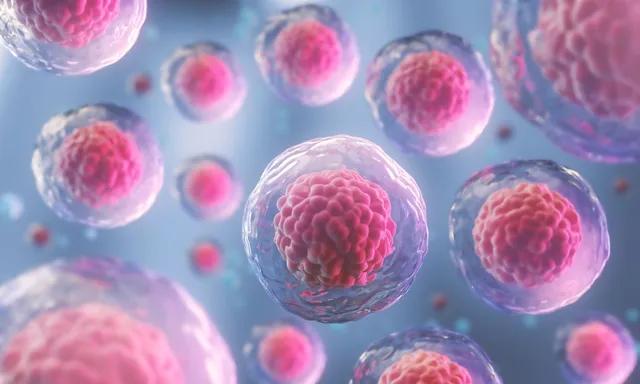
- Published in Corporate News / Blog
Meso Numismatics Closes Global Stem Cell Group Acquisition
LAS VEGAS, NV, August 18, 2021 (GLOBE NEWSWIRE) — via NEWMEDIAWIRE — Meso Numismatics, Inc. (“Meso Numismatics” or the “Company”) (MSSV), a technology and numismatic company specializing in the Meso Region, including Central America and the Caribbean, MSSV is pleased to announce that it has closed its acquisition of Global Stem Cells Group. “We are pleased to have finally been able to close on this acquisition,” said David Christensen, President and CEO of MSSV,” We are now well positioned to enter into the growing global Regenerative Medicine industry.”
Global Stem Cells Group (Global) is a premier Regenerative Medicine company that specializes in cutting edge stem cell research, current clinical applications, and physician training. Global licenses its intellectual property and name to medical professionals around the world providing them with necessary equipment and cellular therapy products needed to perform safe and effective Regenerative medicine related treatments. Global has one of the larges physician membership networks in the world with 29 offices in more than 25 countries. The worldwide Regenerative Medicine industry is a multi billion-dollar industry projected to have double digit annual growth rates over the next decade. For more information on Global Stem Cells Group please follow the link www.stemcellsgroup.com
Please read this press release in conjunction with the 8K that was filed today on www.sec.gov.
MSSV has also renegotiated its June 22, 2021 $10.5M financing, of which $8.2M is earmarked for the Lans Holdings Escrow as per the 8k filed June 24th, 2021, as follows: the warrant maturity has been changed to 7 years instead of 3 years and the warrant shall be locked up for the first 2 years whereas during the lock up period the warrant will not be able to be exercised.
This press release should be read in conjunction with all other filings on www.sec.gov
For more information on Global Stem Cells Group please visit: www.stemcellsgroup.com
About Meso Numismatics: Meso Numismatics, Corp is an emerging numismatic and technology company specialized in the Meso Region, including Central America and the Caribbean. The Company has quickly become the central hub for rare, exquisite, and valuable inventory for not only the Meso region, but for exceptional items from around the world. With the Company’s breadth of business experience and technology team, the Company will continue to help companies grow. Meso has now added bio-technology to it’s portfolio and will continue to grow the company in this new direction.
This press release should be read in conjunction with all other filings on www.sec.gov
For more information on Global Stem Cells Group please visit: www.stemcellsgroup.com
About Meso Numismatics: Meso Numismatics, Corp is an emerging numismatic and technology company specialized in the Meso Region, including Central America and the Caribbean. The Company has quickly become the central hub for rare, exquisite, and valuable inventory for not only the Meso region, but for exceptional items from around the world. With the Company’s breadth of business experience and technology team, the Company will continue to help companies grow.
Forward Looking Statements
Some information in this document constitutes forward-looking statements or statements which may be deemed or construed to be forward-looking statements, such as the closing of the share exchange agreement. The words “plan”, “forecast”, “anticipates”, “estimate”, “project”, “intend”, “expect”, “should”, “believe”, and similar expressions are intended to identify forward-looking statements. These forward-looking statements involve, and are subject to known and unknown risks, uncertainties and other factors which could cause the Company’s actual results, performance (financial or operating) or achievements to differ from the future results, performance (financial or operating) or achievements expressed or implied by such forward-looking statements. The risks, uncertainties and other factors are more fully discussed in the Company’s filings with the U.S. Securities and Exchange Commission. All forward-looking statements attributable to Meso Numismatics, Inc., herein are expressly qualified in their entirety by the above-mentioned cautionary statement. Meso Numismatics, Inc. disclaims any obligation to update forward-looking statements contained in this estimate, except as may be required by law.
For further information, please contact:
Investor.relations@mssvinc.com
Telephone: (800) 956-3935
- Published in Press Releases
ISSCA Opening of Uccle, Belgium Center with GCell & Stem Cell Training
After several months of organizing and developing a location, the Global Stem Cells Group has finalized the construction of a laboratory and regenerative medicine research center in Uccle, Belgium.
This facility serves both as a regenerative medicine treatment and research center, but also as a plastic surgery clinic. In addition to this, one of the primary goals of the Center is to serve as a place for the fostering of knowledge and experience regarding the different products and equipment required for the application of cellular therapies. As part of the inaugural ceremony a group of physicians were trained in the setup and use of the various regenerative medicine protocols and application process of these cells into the patients.
This center is a push into Europe for the Global Stem Cells Group. As the science advances, newer and more advanced therapies and technologies are being developed and released into the market with each passing month.
With the European Union being one of the largest consumer markets in the world, the finalization of a brick-and-mortar location in Brussels, Belgium is one that will mean great things for the Global Stem Cells Group, and the presence and proliferation of regenerative medicine throughout Europe and the world.
“This was a wonderful opportunity that we could have. It goes to show that even during this pandemic, the medical community is one that is still going strong. We’re still rallying together to look for new breakthroughs, and come up with the most beneficial treatment options for patients,” Said Benito Novas, founder of the International Society for Stem Cell Applications, “In addition to this, it also provides an excellent platform for the distribution of regenerative medicine therapies and equipment, including the revolutionary new GCell Machine,”
Indeed, the inaugural training at the Stem Cell Center in Uccle, Belgium was one that covered both of the more traditional methods of stem cell isolation and application– adipose and bone-marrow derived autologous cells, but this training was also one of the first in which the company had the ability to demonstrate the novel GCell Machine. Using a precise system of blades and filters, it is able to process a stem cell sample from adipose tissue in less than half of the time that it would take a physician to do so through traditional means.
This allows the patient to be more comfortable throughout the shorter procedure, as less anesthesia is also required than when operating under traditional means. The GCell is a minimally invasive, portable machine that allows physicians to fully unlock the potential of regenerative medicine as a component in their practice. Using their global network of distributors and licensed vendors, Global Stem Cells Group is working fervently to ensure no interruption in the global availability of the most cutting-edge regenerative medicine products.
- Published in Press Releases
Stem cell treatment could offer one-end-solution to Diabetes
Insulin-producing cells grown in the lab could provide a possible cure for the age-old disease, diabetes.
Understanding Type 1 Diabetes
Type 1 diabetes is an autoimmune disease that destroys insulin-producing pancreatic beta cells, leading to dangerously high blood glucose levels. Patients often require insulin administration and other medications to manage blood sugar levels. For those who struggle with blood sugar control, beta-cell transplants are an option, but they require immunosuppressive drugs.
Breakthroughs in Stem Cell Research
A research group at Harvard University reported using insulin-producing cells derived from human embryonic stem cells (ESCs) and induced pluripotent stem cells to lower blood glucose levels in mice. Laboratories worldwide are making rapid progress in human stem cell technology to develop cells functionally equivalent to beta cells and other pancreatic cell types. Novel biomaterials are being developed to encapsulate these cells, protecting them from the immune system without the need for immunosuppressants.
Major Investments in Diabetes Treatment
Pharmaceutical companies and venture capital firms have invested over $100 million in leading biotechnology companies to bring stem cell treatments into clinical use. Prominent companies include:
- Semma Therapeutics
- Sigilon Therapeutics
- ViaCyte
Transforming Human Stem Cells into Insulin-Producing Cells
Researchers at UC San Francisco have successfully transformed human stem cells into mature insulin-producing cells, a significant breakthrough in developing a cure for Type 1 Diabetes (T1D). These cells mimic the function of pancreatic beta cells and offer hope for creating transplantable cells for patients with diabetes.
What is T1 Diabetes?
Type 1 diabetes is characterized by the destruction of insulin-producing beta cells in the pancreas, typically starting in childhood. Without insulin, blood glucose levels can spike, causing severe organ damage and potentially leading to death. The condition can be managed with insulin shots, but serious health complications often persist, such as kidney failure, heart disease, and stroke.
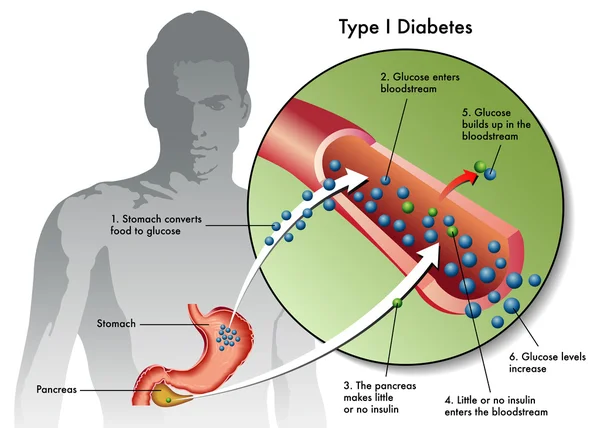
Making Insulin-Producing Cells from Stem Cells
Diabetes can be treated through a pancreas transplant or donor cell transplantation, but both methods rely on deceased donors. Scientists have struggled to produce mature beta cells responsive to blood glucose and capable of secreting insulin correctly. However, recent breakthroughs at UCSF have achieved this transformation in mice, marking a critical step toward human application.
Protecting Stem Cell Therapies from the Immune System
Delivering stem cell therapies requires protection from immune attacks while maintaining cell functionality. Companies are exploring two main strategies:
- Microencapsulation: Immobilizing cells individually or in small clusters within biocompatible gel blobs.
- Macroencapsulation: Placing larger numbers of cells into a larger, implantable device.
Companies Leading the Way
- ViaCyte: Partnered with Johnson & Johnson, using microencapsulation in clinical trials.
- Semma: Developing both macro- and microencapsulation methods, readying for clinical trials.
- Sigilon: Utilizing gel-based spheres for encapsulation, in collaboration with Eli Lilly.
Conclusion
Stem cell treatment holds the potential to revolutionize diabetes care, offering a one-end solution to managing and potentially curing the disease. With significant investments and ongoing research, the future of diabetes treatment looks promising. Researchers and companies are making strides in developing effective and safe stem cell therapies, bringing hope to millions worldwide.
- Published in Corporate News / Blog
Adimarket Set to Share Innovative Exosomes Products at Upcoming Medical Congresses
The online retailer launched its new line of products in July and will speak with physicians seeking new treatment products and protocols to alleviate patient suffering
MIAMI LAKES, Florida—Adimarket, LLC, an online marketplace for regenerative medicine practitioners and a subsidiary of the Global Stem Cells Group (GSCG), has taken to the road in a series of business trips with the intent of promoting the group’s new line of exosomes, a neonatal-derived stem cells product.
The exosomes products were launched in July 2019 in Buenos Aires, and during the weekend of August 23, Adimarket representatives were in Santiago de Chile to sponsor one of the regenerative medicine industry’s most prolific medical congresses, hosted by the Chilean Society of Aesthetic Surgery. During the event, Mr. Benito Novas, Chief Executive Officer of the Global Stem Cells Group, was on hand to officially launch the exosomes products with a lecture in the congress’ main room.
The Adimarket and GSCG teams will continue their series of business trips to introduce Adimarket’s line of exosomes products to physicians across the globe. Currently, two additional business trips are on the docket where representatives will attend two upcoming medical congresses.
On September 25, 2019 GSCG faculty members will attend the 4th International Congress of Aesthetic Gynecology in Veracruz, Mexico to be held at the Holiday Inn Hotel. One faculty member will speak to the audience about the newest exosomes products and their clinical applications.
The GSCG will also be hosting the International Cell Therapy Symposium on the University of Miami campus in Miami, Florida on October 24, 2019. The event is expected to draw a large attendance of physicians in the regenerative medicine field, and the GSCG has invited more than 10 scientists and practitioners with vast experience in regenerative medicine to host the congress’ educational sessions. At least five of the conference sessions will focus on how exosomes can help people suffering from degenerative diseases
“Adimarket, in conjunction with the Global Stem Cells Group, is pleased to be able to share its newest exosomes products with physicians across the globe practicing regenerative medicine,” said Benito Novas, CEO of the Global Stem Cells Group. “Our goal is to create groundbreaking products and treatment protocols that help physicians deliver innovative treatment options to their patients, helping to alleviate suffering caused by degenerative diseases.”
To learn more about Adimarket and its product offerings, visit https://www.adimarket.net/. To learn more about the Global Stem Cells Group and its efforts in the field of regenerative medicine, visit http://www.stemcellsgroup.com/.
- Published in Press Releases
ISSCA Set to Welcome 13 Speakers at Upcoming Symposium in Miami
The regenerative medicine symposium will be held on the University of Miami campus on October 24, 2019.
MIAMI LAKES, Florida—The International Society for Stem Cell Application (ISSCA) has announced its lineup of speakers for its upcoming Regenerative Medicine Symposium. The symposium will be held on the University of Miami campus in the Donna E. Shalala Student Center on October 24, 2019 and features an impressive lineup of global authorities in regenerative medicine.
ISSCA is a global leader in stem cells research, applications, and education, partnering with major global institutions and locations worldwide to host its independent medical congresses. This year’s symposium hosted on the University of Miami campus will feature industry experts from seven countries, including Spain, Argentina, Bolivia, Colombia, Ecuador, Mexico, and the US. Some notable speakers include the following:
- Dra. Silvina Pastrana from Argentina, who serves as the Medical Director of the Stem Cells Center Buenos Aires. Dra. Pastrana will discuss her experiences in treating patients who suffer from osteoarthritis conditions.
- Dr. Pedro Sanchez hails from Colombia and is a highly regarded regenerative medicine and orthopedic specialist. He currently practices in Bogota where he offers stem cells treatments for people who suffer from orthopedic conditions.
- Dr. Miguel Guillermo Garbe of Spain serves as the president of the country’s Regenerative Medicine Association. He currently leads a seminal investigation on how to increase cardiological function in patients who have suffered from strokes.
- Dr. Roberto Blum from Ecuador has worked in the stem cells field for over 10 years and will share his industry experience with attendees.
- Dr. Victor Pereyra, an Argentinian neurosurgeon, will lecture on how ozone therapy and stem cells could help patients suffering from spinal injuries.
“The symposium will provide an informative day where physicians can learn from global leaders in the stem cells industry with the hopes of bringing new knowledge and treatment options back to their practices for their patients suffering from degenerative diseases.”
To learn more about the ISSCA and its Miami symposium, visit
http://www.stemcellsgroup.com/.
.
- Published in Press Releases
GSCG Meets Demands of Patients Seeking Stem Cells Treatment with New Facilities
The group’s new permanent office in Cancun will help streamline the patient experience by providing holistic support throughout the treatment process.
MIAMI LAKES, Florida—The Global Stem Cells Group (GSCG) today announced that it will be opening a permanent office in Cancun, Mexico. The decision to expand its corporate presence into Cancun was based on the rising demand for patients seeking stem cells treatments at the group’s facilities already established in Cancun. The GSCG maintains two regenerative medicine operations in Cancun, which include medical facilities and a stem cells laboratory.
GSCG’s Cancun facilities provide state-of-the art options for patients seeking stem cells treatments that are currently not available in the US. While these protocols and products are currently unavailable within the US’s borders due to regulations, the Cancun center has still adopted the FDA’s frameworks for safe and effective regenerative medicine products and therapies. Guided by these protocols, physicians at the center deliver safe and effective stem cells therapies and products that can help patients suffering from degenerative diseases recover more quickly than with traditional treatment protocols.
With the establishment of a permanent office presence in Cancun, the GSCG seeks to provide a seamless holistic experience for patients seeking treatment at its facilities. With its office located near its medical center and laboratory, the GSCG team can more closely monitor the treatment process from the time the patient arrives at the Cancun airport to the time their treatment is complete and they return to the US.
“The Global Stem Cells Group is pleased to establish a permanent presence in Cancun with the opening of this new office location,” said Benito Novas, CEO of the Global Stem Cells Group. “By expanding our presence, we will be able to open up additional treatment opportunities for physicians in the US who may be limited by FDA regulations in ensuring their patients receive the critical stem cells therapies they need. US patients looking for relief from regenerative diseases are welcome at our Cancun center and will appreciate our state-of-the art facilities and top-notch care.”
To learn more about the Global Stem Cells Group and its latest efforts, visit http://www.stemcellsgroup.com/.
.
- Published in Press Releases

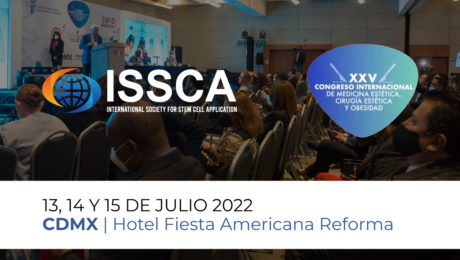
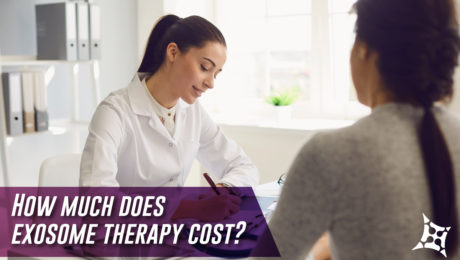
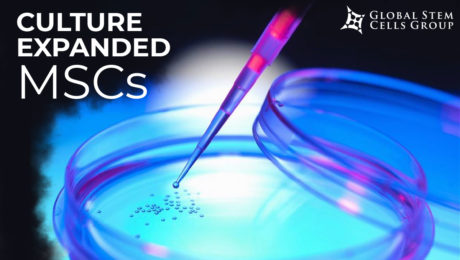
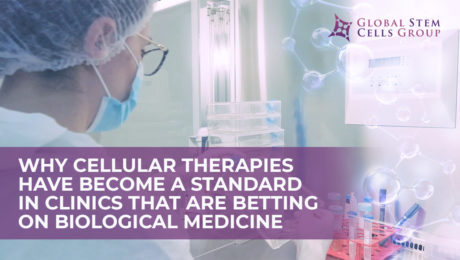
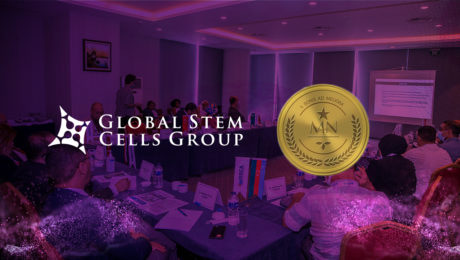
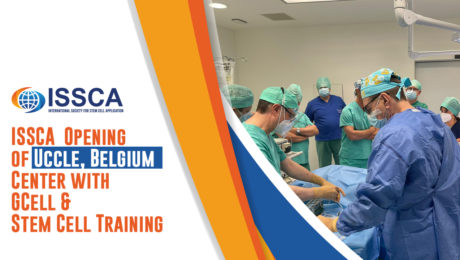
![Secondary-Diabetes[1]](https://www.stemcellsgroup.com/wp-content/uploads/2020/02/Secondary-Diabetes1-460x260_c.png)
